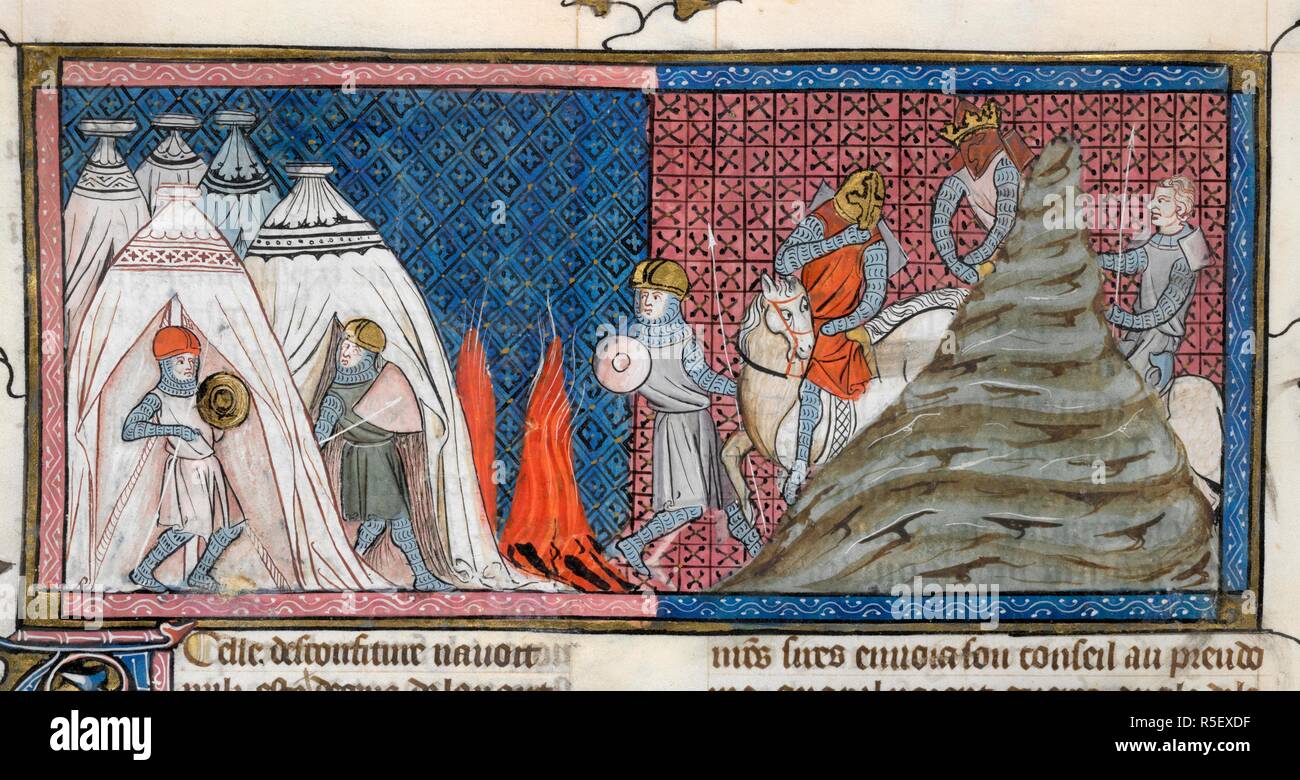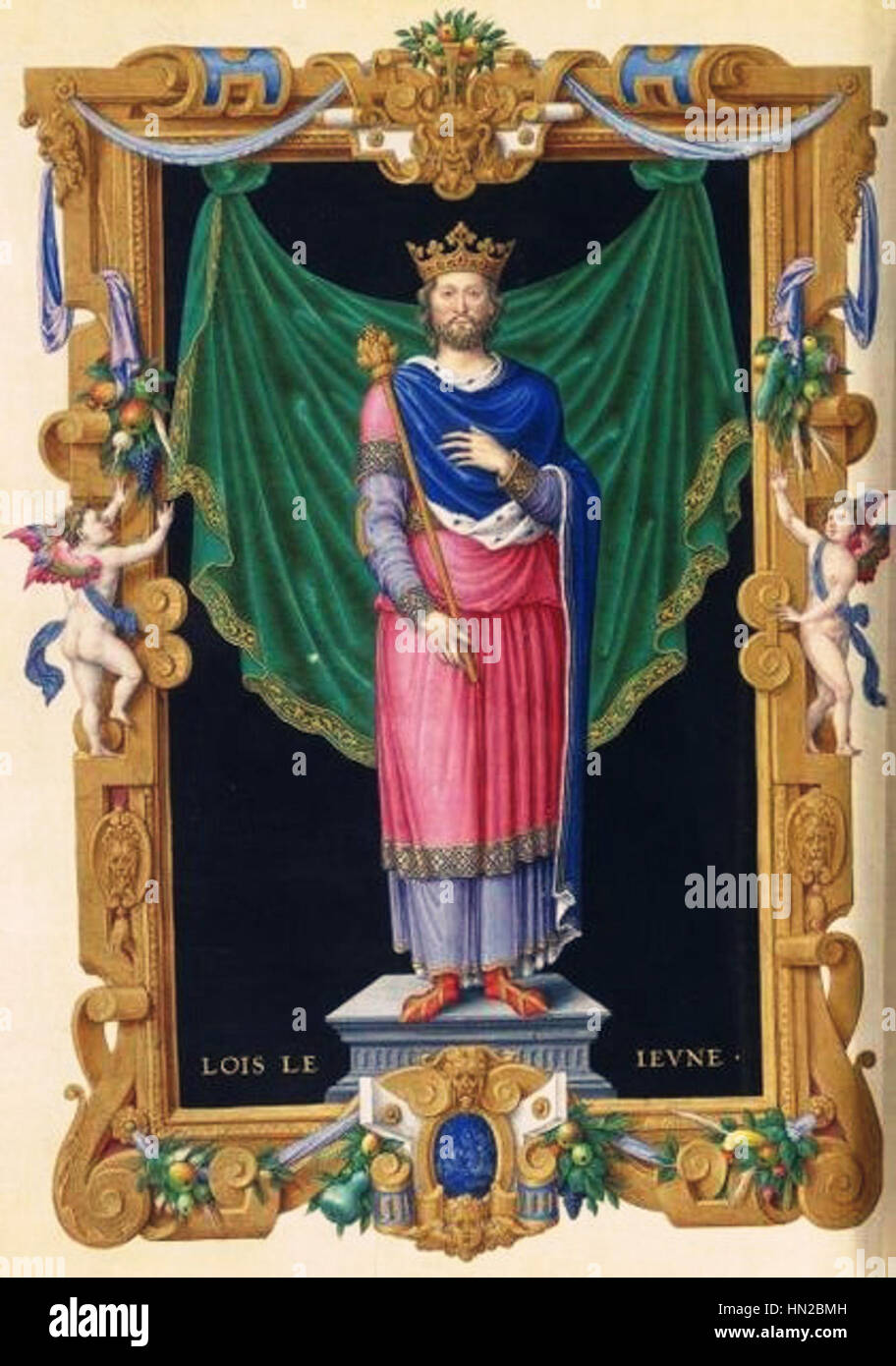Imagine a king, burdened by the weight of a crumbling kingdom, beset by war and internal strife, and haunted by the shadow of his own past. This is the story of Louis VII, a king of France whose reign, though largely forgotten in the history books, holds a surprising depth of intrigue and complexity.

Image:
Often overshadowed by the more famous figures of his dynasty, such as his grandfather, Louis VI, and his son, Philip II, Louis VII reigned during a time of great upheaval. The French kingdom, still in its nascent stages, was constantly battling with powerful enemies – the English, the Holy Roman Empire, and even its own feudal lords. It was a time of constant struggle, and Louis VII found himself at the heart of it all.
A King Shaped by Tragedy and Ambition
Born in 1120, Louis VII was the eldest son of Louis VI, the “Fat,” who had spent his reign consolidating power and laying the foundations for a stronger French monarchy. Louis VII inherited this ambitious vision, but his reign was also defined by a deep sense of personal loss, starting with the death of his father at the tender age of 18.
He was crowned king in 1137 and immediately faced the pressures of governing a complex and turbulent kingdom. One of his first major challenges was the ongoing conflict with the English over control of the duchy of Normandy. Louis VII’s initial attempts to reclaim Normandy failed, a stark reminder of the limitations of his power.
The Crusades: A Turning Point in the Life of Louis VII
In 1147, Louis VII made a momentous decision – he pledged to join the Second Crusade, a military expedition aimed at reclaiming the Holy Land from Muslim control. Fueled by a mix of religious fervor and political ambition, he set out on a journey that would change the course of his life and reign.
The Second Crusade was a disaster. While Louis VII made it to the Holy Land, the campaign was plagued by internal conflicts, logistical nightmares, and crushing military defeats. The crusaders were ultimately unsuccessful in capturing Jerusalem, and the experience left a lasting impact on Louis VII. It also led to a rift between him and his wife, Eleanor of Aquitaine, a powerful and independent woman who had been a key supporter of the crusade.
The End of a Marriage and the Rise of a New Dynasty
Eleanor, known for her beauty, intelligence, and political acumen, had been a powerful ally to Louis VII. However, the failures of the crusade and the growing tension between them led to a bitter separation in 1152. Their divorce was a scandal that shook the medieval world, sending ripples through the power dynamics of the French court.
Eleanor’s subsequent marriage to Henry Plantagenet, Count of Anjou, created a powerful rival to the French monarchy. This marriage also gave rise to the Plantagenet dynasty, which would later claim the English throne and become the leading force opposing the French monarchy for centuries.

Image: www.alamy.com
The Legacy of Louis VII: A King of Contradictions
Louis VII, though overshadowed by his more successful son, Philip II, played a significant role in the development of the French monarchy. He faced a series of daunting challenges during his reign. Despite his failures, he also made strides in expanding the royal domain, strengthened the French church, and set the stage for the growth and consolidation of the French kingdom under his son.
He was a king who grappled with the weight of his responsibilities, who sought glory on the fields of the Holy Land, and who was ultimately undone by the complexities of his own personal life. His legacy is not solely about his failures, but about his resilience, his dedication to his kingdom, and his role as a pivotal figure during a crucial period in French history.
Louis Vii
Finding Louis VII: Beyond the History Books
In today’s world, it can be difficult to connect with the lived experiences of a king from the 12th century. To truly understand Louis VII, one needs to go beyond the dry accounts of historical textbooks and delve into the rich tapestry of medieval literature and art.
The writings of chroniclers, the stories told in chivalric romances, and even the architectural marvels of the period provide glimpses into the life and times of this fascinating king. His story, though often forgotten, is a compelling reminder that even those who fail can leave a lasting impact on the course of history.
Louis VII may not have been the most famous king of France, but he was a king of contradictions, a king of ambition and loss, and a king whose life serves as a reminder that even in the face of adversity, even in the shadow of larger figures, a single person can make a difference.





